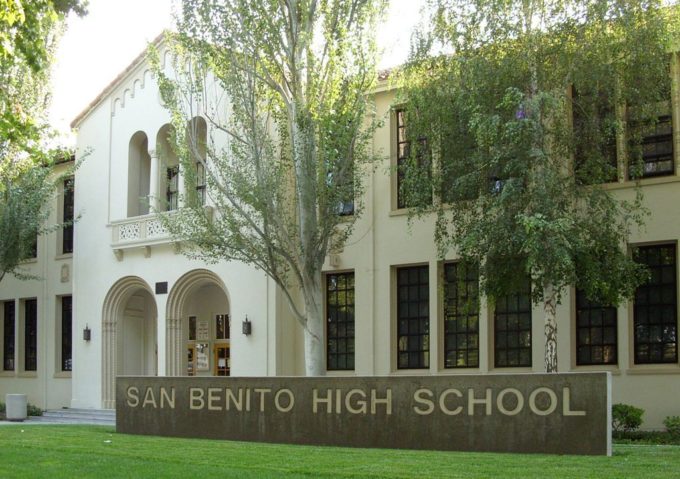
Longoria v. San Benito: Texas High School Allowed to Remove Student from Cheerleading Team for “Inappropriate” Twitter Posts
By Adam Toobin - Edited by Nay Constantine
Zulema Longoria ex rel M.L. v. San Benito Independent Consolidate School District, No. 18-41060 (5th Cir. Nov. 4, 2019).
Despite a district court’s ruling that a Texas high school student’s cheerleading coaches violated her First Amendment rights, the Fifth Circuit denied her appeal for relief based on the qualified immunity of the school officials. The student was removed from the team based on the presence of “inappropriate” posts on her Twitter account.
In its ruling against the student, known in the proceedings as M.L., the Fifth Circuit affirmed the lower court’s finding that the school’s actions had not crossed “clearly established” constitutional lines and were protected by their qualified immunity as government officials. Under qualified immunity, certain violations of constitutional rights are shielded unless the officials’ actions “violate clearly established statutory or constitutional rights of which a reasonable person would have known.”
By focusing on the school district’s claim of qualified immunity, the Fifth Circuit avoided the question of whether the school’s actions violated M.L.’s constitutional rights. It did, however, attempt to clarify for future cases that the off-campus Internet speech of students merits some level of First Amendment protection, though it refused to draw any bright-line rules.
The conflict that led to this case began in March 2017, when M.L.’s coaches elevated her to the position of head cheerleader. The role required M.L. to sign a “Cheerleading Constitution” promising to maintain “appropriate” conduct on her social media profile. Shortly after, the coaches banned her from the team altogether, citing the presence of various “inappropriate” posts on M.L.’s Twitter profile, in which she specifically identified herself as a member of “San Benito Varsity Cheer” in her description.
The offensive posts totaled ten: Eight were posts she had “liked,” which Twitter compiles in a channel distinct from the more prominent feed of original posts and retweets; one was a retweet, from an individual with the username “Bitch Code;” and one was an original tweet, in which M.L. responded “Yes” to a third-party user’s asking “Did pope split you in half?,” employing a sexual innuendo.
Among the “liked” posts, the severity of the language, which the school deemed in violation of the Cheerleading Constitution, varied:
“Imma show my mom all the snaps from girls partying for spring break so she can appreciate her lame ass daughter some more”
“i [sic] don’t fuck with people who lowkey try to compete with/ out do me”
“I love kissing lmao”
One “liked” tweet, from an account entitled Horny Facts™, stated “bitch don’t my …” and contained an image that the court deemed “indiscernible in the record.”
In dismissing M.L. from the team, her coaches presented her and her mother with a letter informing them that her posts had earned her a number of “demerits” that warranted her removal. It was the first time the coaches had raised an issue, according to M.L. After appealing to the principal, M.L. and her mother brought this suit under 42 U.S.C. § 1983.
In analyzing the state of law on a public school student’s right to free speech, the Fifth Circuit evaluated the applicability of a host of related constitutional claims, including the case of Tinker v. Des Moines Indep. Comm. Sch. Dist, in which the Supreme Court upheld the rights of students to wear black armbands in protest of the Vietnam War on campus. Despite representing a powerful general precedent on the rights of students in school, the Tenth Circuit went on to examine whether any other cases provided more specific guidance on whether San Benito high school violated a “clearly established” standard in disciplining M.L. for off-campus online speech.
Next, the Fifth Circuit looked to its ruling in Bell v. Itawamba County School Board, when it upheld the suspension of a student who posted to his YouTube page a video of him making “threatening, profane, and intimidating [statements] directed towards two teachers, accusing them of sexually harassing students at the high school.” M.L. argued that her school should have known her case was different. She argued Bell provided that students could only be disciplined for speech “directed” at the school community, whereas her Twitter page was entirely distinct. However, the Tenth Circuit did not agree. The court held that the lines blurred when she identified as a member of “San Benito Valley Cheer” on her profile and agreed to maintain her social media “appropriate” in the Cheerleading Constitution.
Acknowledging that the “pervasive and omnipresent nature of the Internet” had created a “lack of clarity” regarding off-campus speech protections, the Tenth Circuit did attempt to clarify the law for students and administrators.
First, the court noted that administrators may not discipline a student for off-campus speech simply because they find it “offensive.” Next, they insisted that “non-threatening” student speech merited significant First Amendment protection. And finally, the court determined that a student must actually “direct” their speech at the school community to be liable for discipline.
While the court was silent on whether San Benito High School in fact violated these standards, it did note that the school allowed M.L. to rejoin the team for the 2019-20 academic year. Upon her return, her teammates elected her captain.
Adam Toobin is a 1L at Harvard Law School. He is interested in the role of the First Amendment in the digital age.